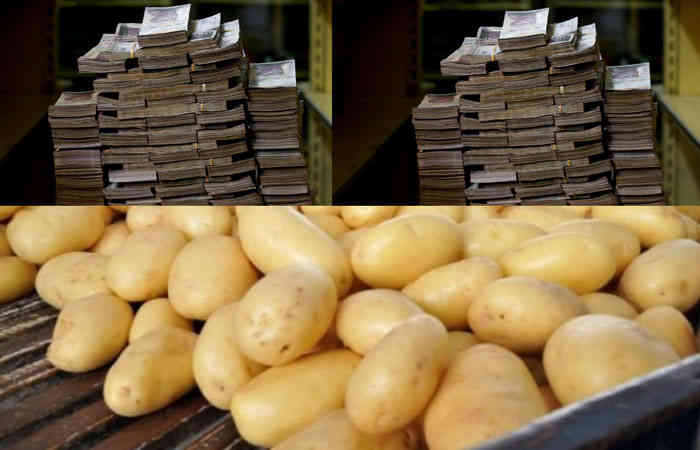
Caracas, Ta. Wednesday, October 7, 2020
Venezuela's currency, once a source of wealth, is now scrapped. The price is so high that you have to fill a box for a cup of tea and coffee and carry currency notes! To overcome this difficulty, the Venezuelan government will once again print large notes.
According to a Bloomberg report, Venezuela also has to import paper for printing currency notes. It has so far bought 71 tonnes of security paper from an Italian company. The currency here is called the bolivar.
Venezuela's central bank will now print one million bolivar notes. This will be the biggest note ever. The note will be worth only 0.23 in the international market, allowing only two kilos of potatoes to be bought. Previously, 50,000 bolivar notes have been printed here.
Last year, the country's inflation rate was 2400 per cent. The country's economy is in recession for the seventh year in a row. This year, the Koro epidemic and declining oil revenues are likely to hit the economy by another 20 percent.
The government reduced zero from its notes to stabilize the currency, but all attempts failed. Inflation has been steadily rising in Venezuela since 2017. Most people can't even afford the necessities of life. As evening falls, shoplifting begins.
The Venezuelan currency has no value due to four-digit inflation. Consumers are forced to transfer either plastic or electronic items. Or have to keep dollars. However the local currency bolivar is all that is needed to use the bus.
Inflation in the country is so high that one has to pay millions of bolivars for a kilo of meat. To escape poverty and starvation, some three million people have fled Venezuela to Brazil, Chile, Colombia, Ecuador, and Peru.
The fall in international oil prices in 2014 affected many countries, including Venezuela. Oil alone accounts for 96 per cent of the country's total exports. Four years ago, oil prices fell to their lowest level in 30 years.
Due to the economic crisis, the government continued to print notes, leading to hyperinflation, and consequently falling bolivar prices, with President Maduro blaming the Organization of the Petroleum Exporting Countries (OPEC) sanctions for the country's economic woes. The United States has also been pushing for economic sanctions to remove Maduro from power.
Comments
Post a Comment
What you think about this NEWS please post your valuable comments on this article, we will immediately publish your comments on this page